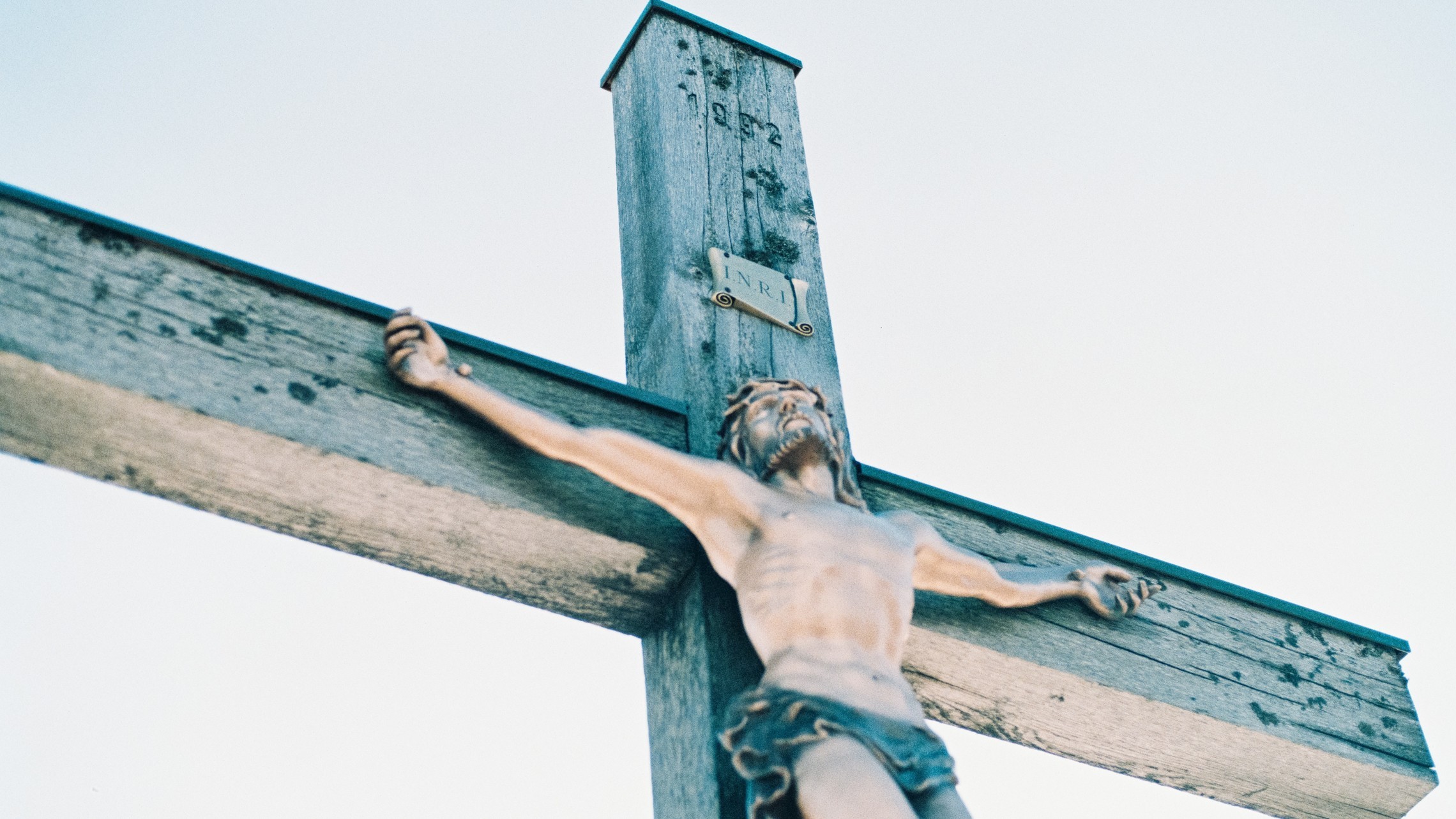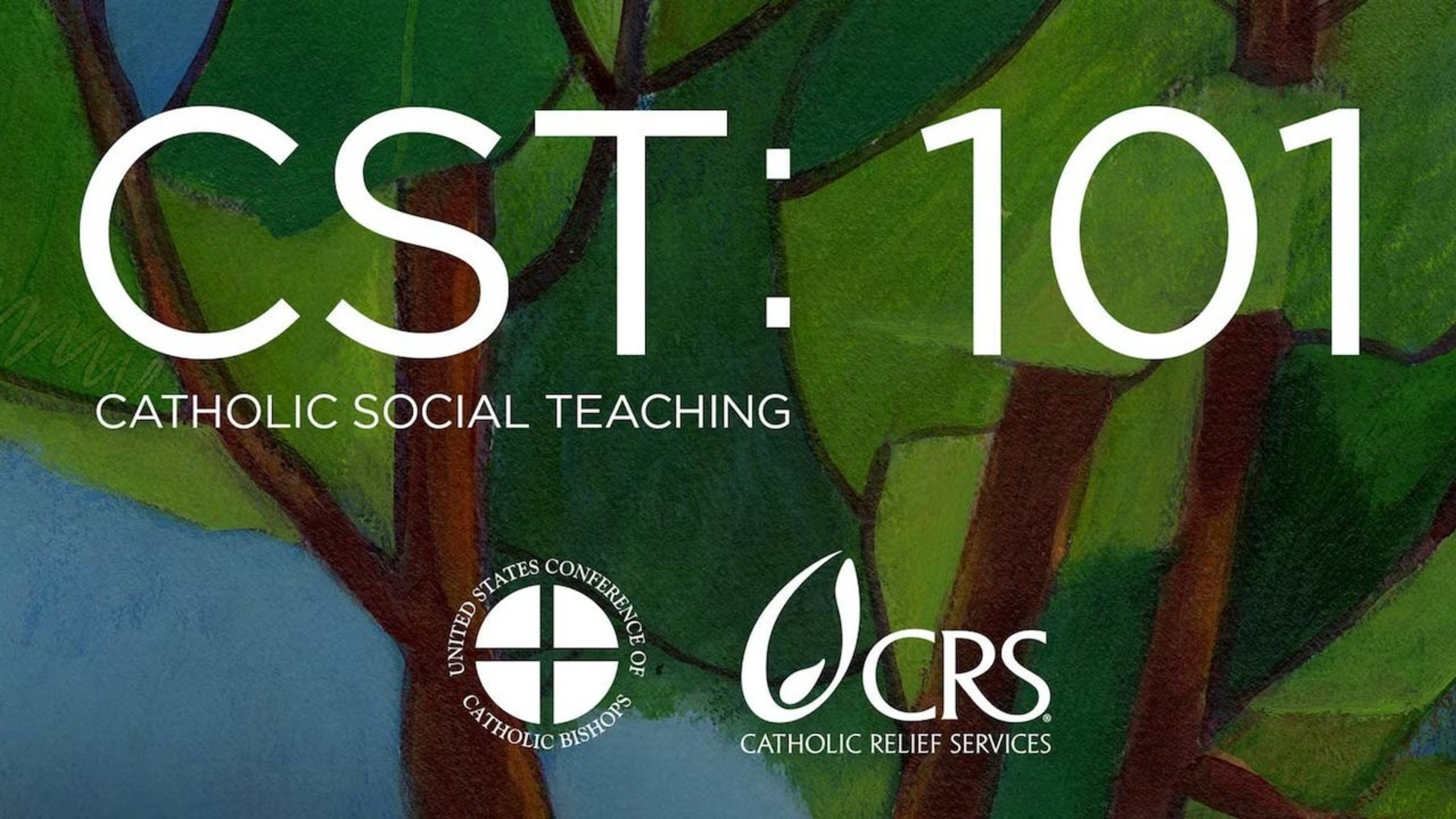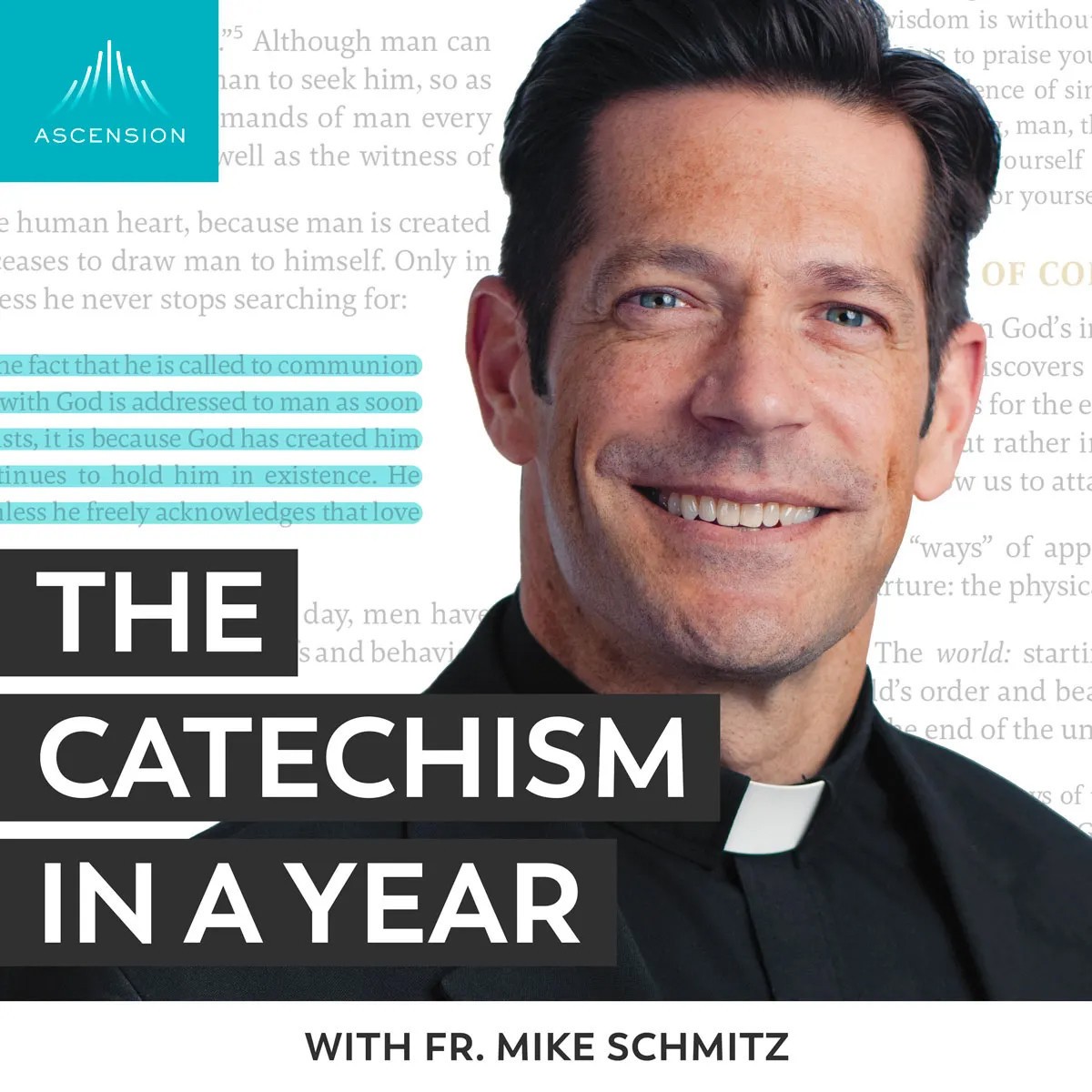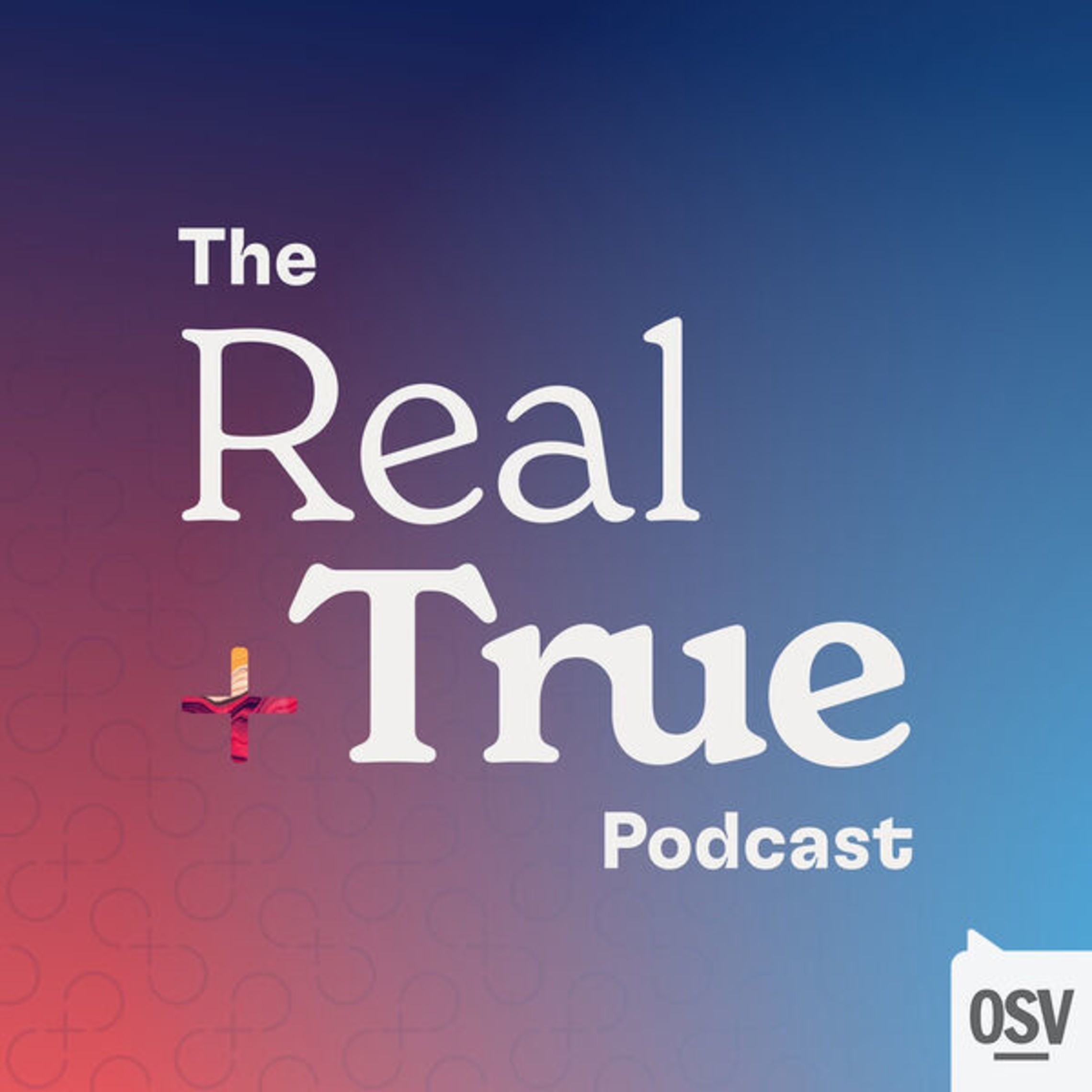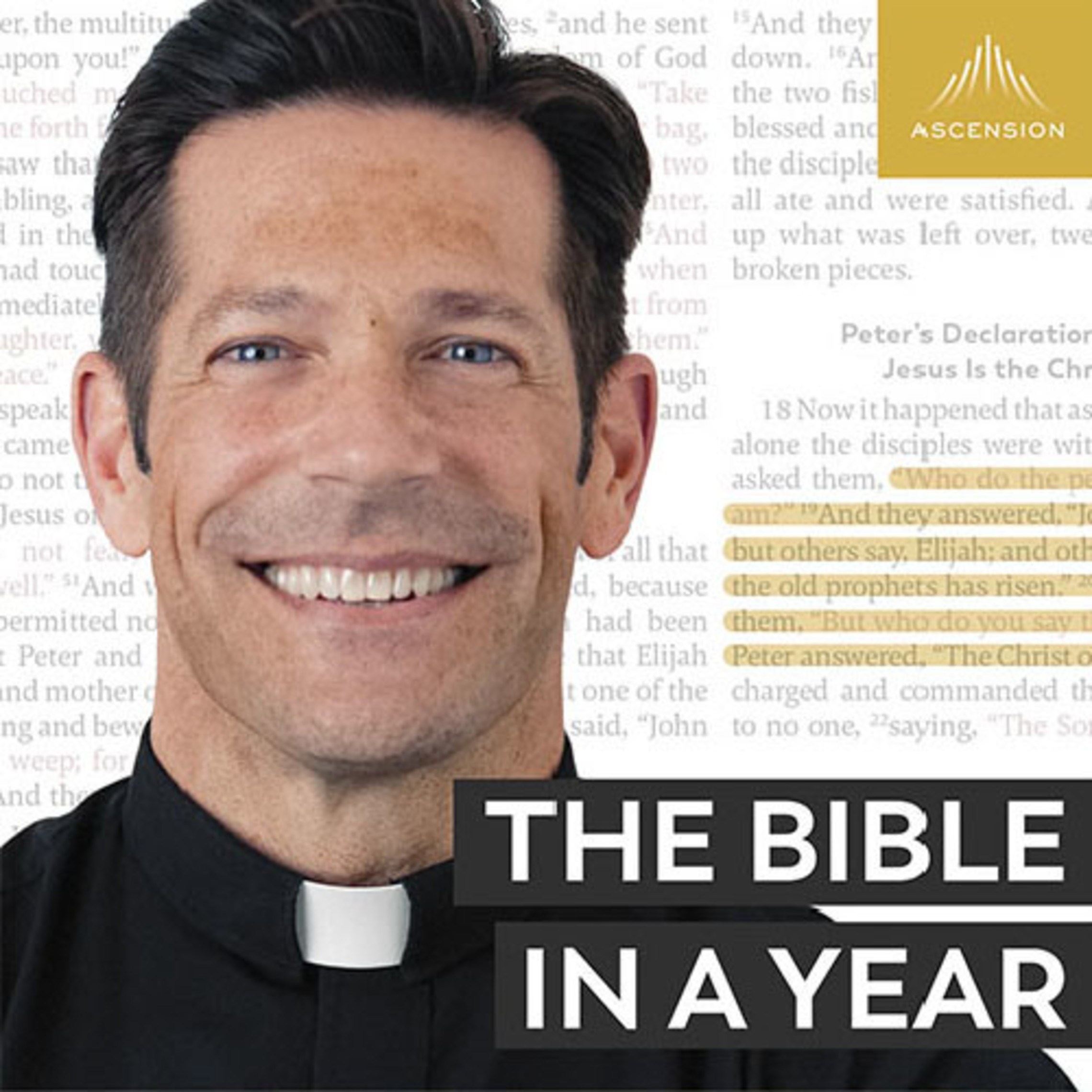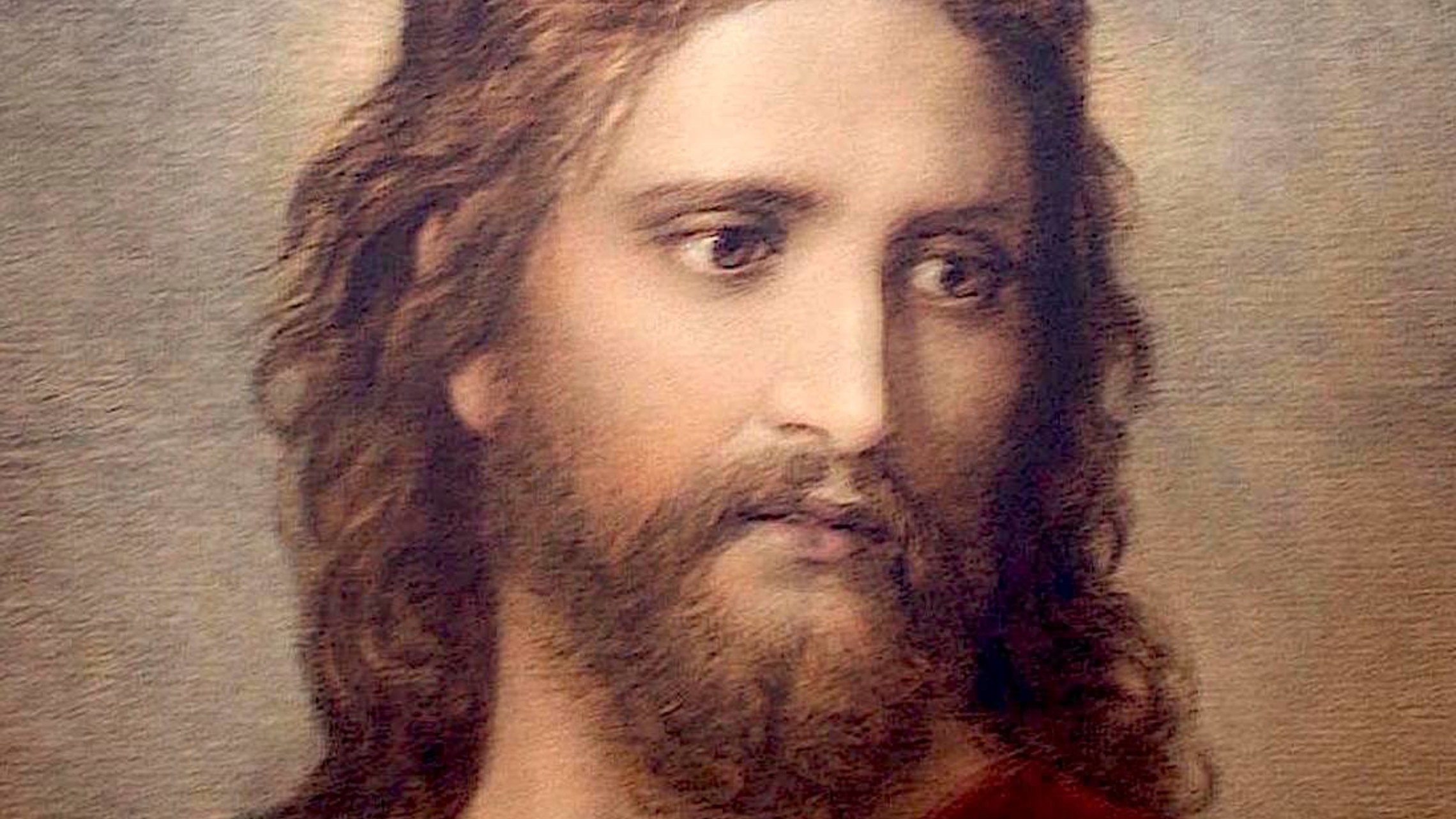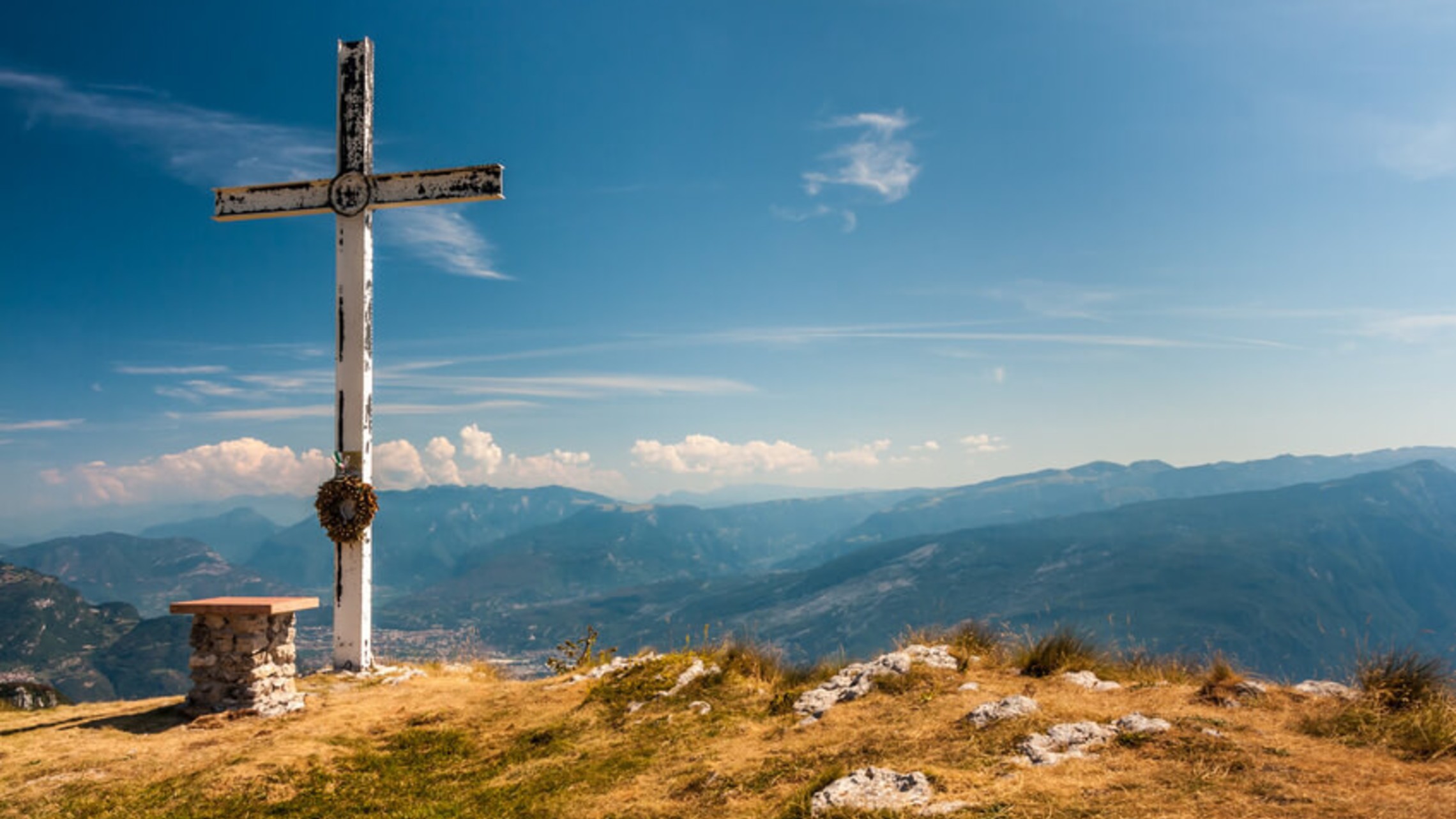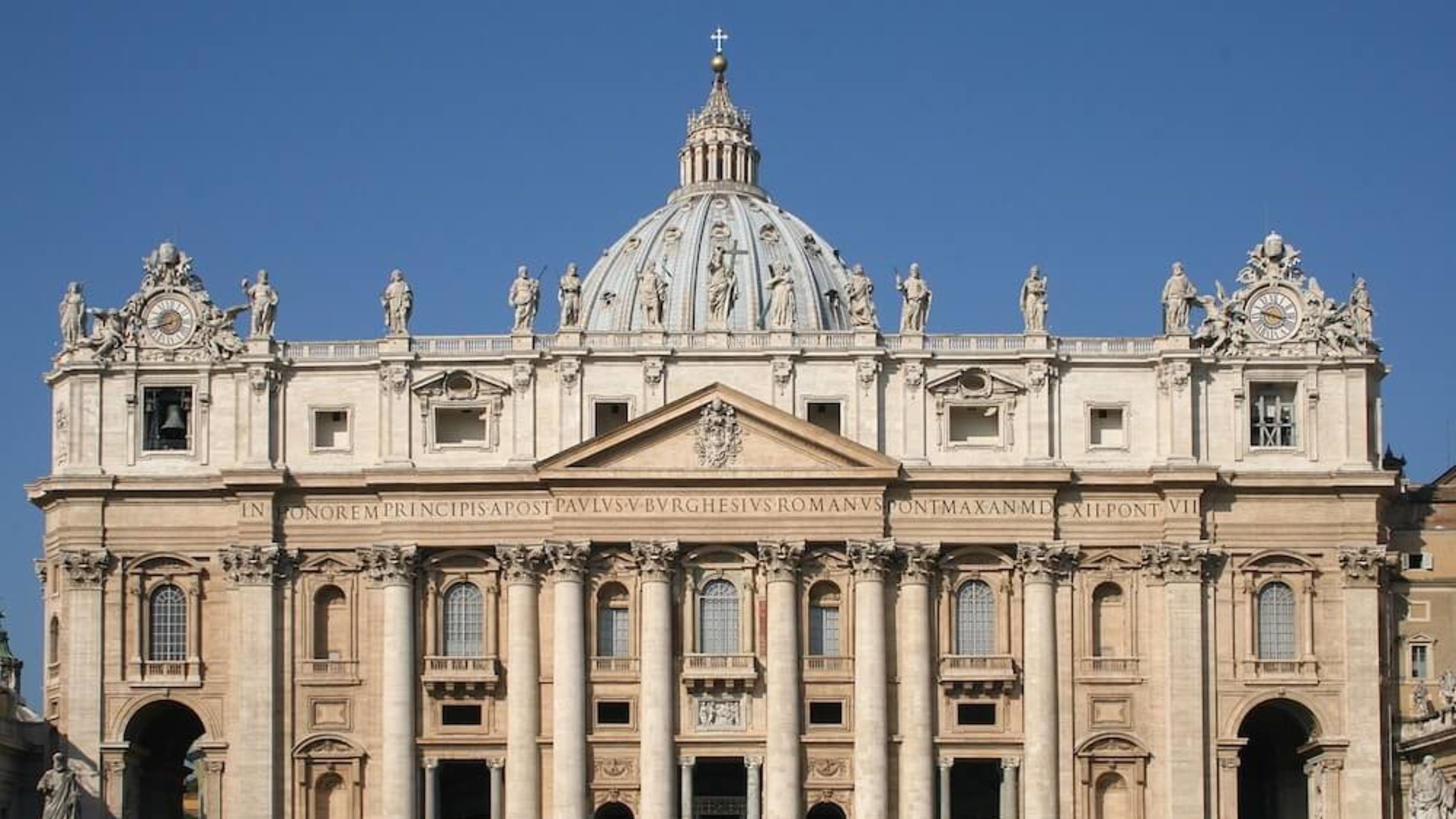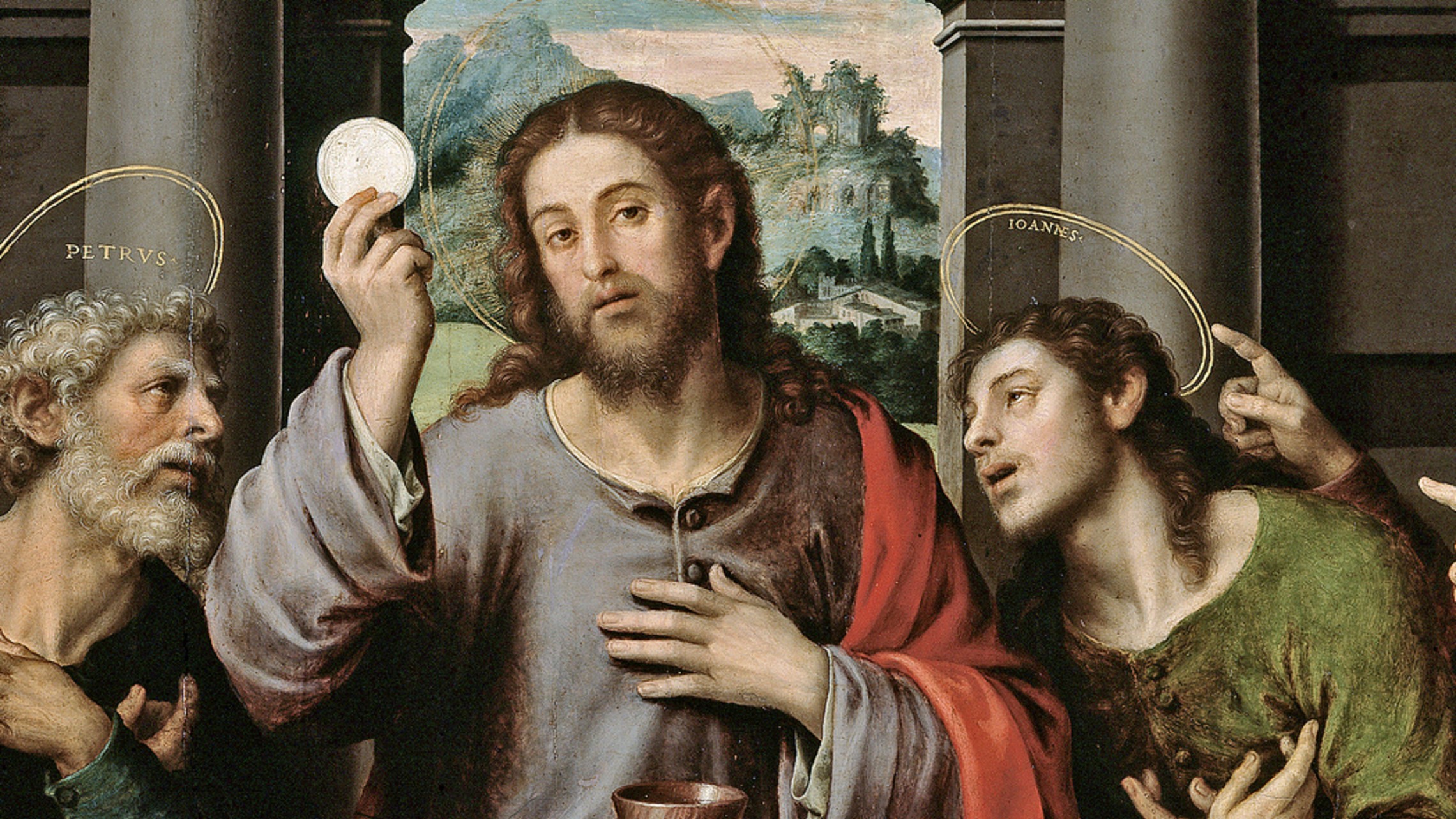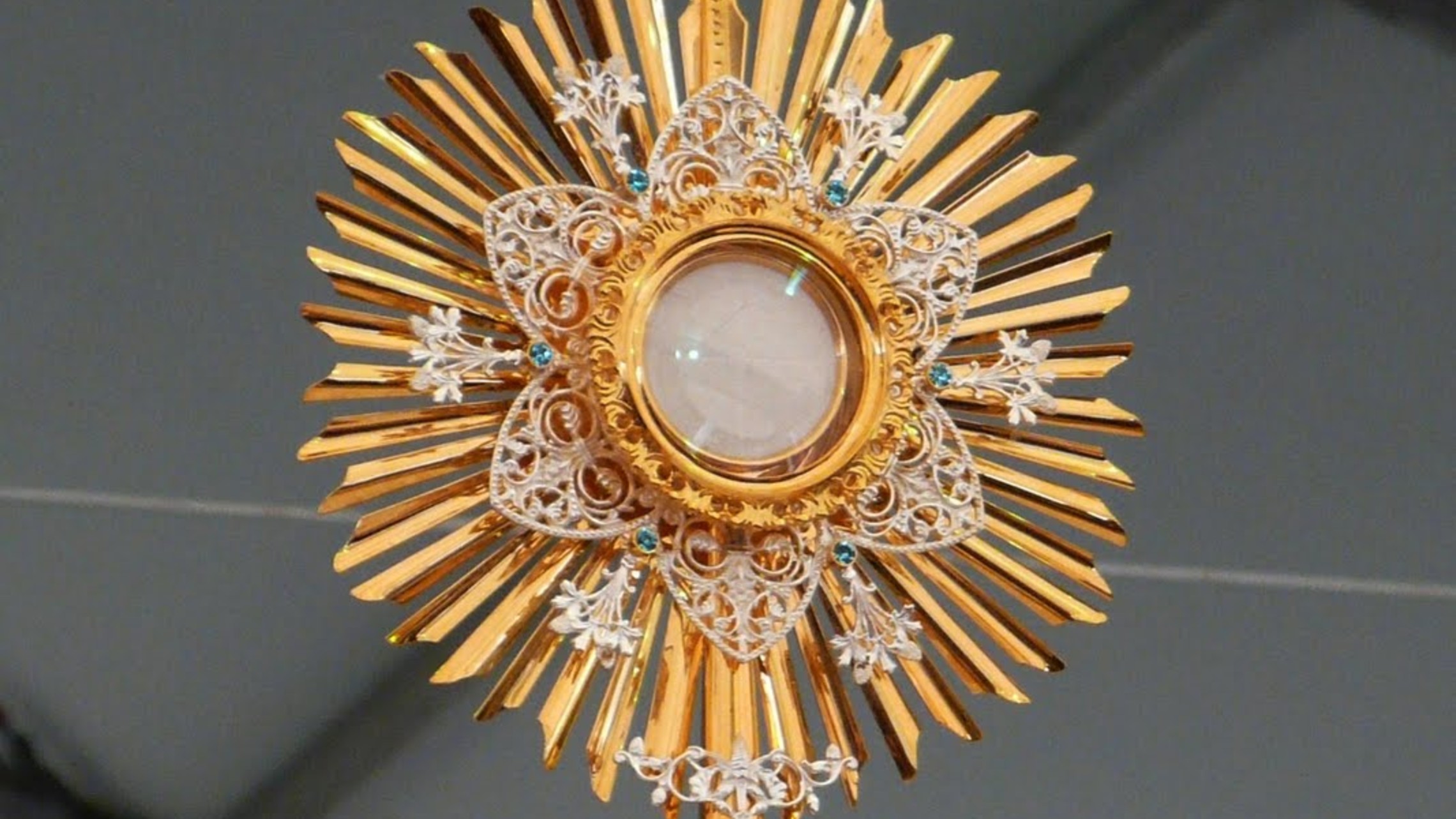Seasonal Resources
Any book which inspires us to lead a better life is a good book.
– Blessed Fulton Sheen
2024 National Eucharistic Congress Playlist
Featured Podcasts
Daily Readings
- Readings for the Memorial of Saint Josaphat, Bishop and Martyr
Hear, O kings, and understand;
learn, you magistrates of the earth's expanse!
Hearken, you who are in power over the multitude
and lord it over throngs of peoples!
Because authority was given you by the Lord
and sovereignty by the Most High,
who shall probe your works and scrutinize your counsels.
Because, though you were ministers of his kingdom, you judged not rightly,
and did not keep the law,
nor walk according to the will of God,
Terribly and swiftly shall he come against you,
because judgment is stern for the exalted–
For the lowly may be pardoned out of mercy
but the mighty shall be mightily put to the test.
For the Lord of all shows no partiality,
nor does he fear greatness,
Because he himself made the great as well as the small,
and he provides for all alike;
but for those in power a rigorous scrutiny impends.
To you, therefore, O princes, are my words addressed
that you may learn wisdom and that you may not sin.
For those who keep the holy precepts hallowed shall be found holy,
and those learned in them will have ready a response.
Desire therefore my words;
long for them and you shall be instructed.
R. (8a) Rise up, O God, bring judgment to the earth.
Defend the lowly and the fatherless;
render justice to the afflicted and the destitute.
Rescue the lowly and the poor;
from the hand of the wicked deliver them.
R. Rise up, O God, bring judgment to the earth.
I said: "You are gods,
all of you sons of the Most High;
yet like men you shall die,
and fall like any prince."
R. Rise up, O God, bring judgment to the earth.
R. Alleluia, alleluia.
In all circumstances, give thanks,
for this is the will of God for you in Christ Jesus.
R. Alleluia, alleluia.
As Jesus continued his journey to Jerusalem,
he traveled through Samaria and Galilee.
As he was entering a village, ten lepers met him.
They stood at a distance from him and raised their voice, saying,
"Jesus, Master! Have pity on us!"
And when he saw them, he said,
"Go show yourselves to the priests."
As they were going they were cleansed.
And one of them, realizing he had been healed,
returned, glorifying God in a loud voice;
and he fell at the feet of Jesus and thanked him.
He was a Samaritan.
Jesus said in reply,
"Ten were cleansed, were they not?
Where are the other nine?
Has none but this foreigner returned to give thanks to God?"
Then he said to him, "Stand up and go;
your faith has saved you."
Lectionary for Mass for Use in the Dioceses of the United States, second typical edition, Copyright © 2001, 1998, 1997, 1986, 1970 Confraternity of Christian Doctrine; Psalm refrain © 1968, 1981, 1997, International Committee on English in the Liturgy, Inc. All rights reserved. Neither this work nor any part of it may be reproduced, distributed, performed or displayed in any medium, including electronic or digital, without permission in writing from the copyright owner.
- Readings for the Memorial of Saint Martin of Tours, Bishop
God formed man to be imperishable;
the image of his own nature he made them.
But by the envy of the Devil, death entered the world,
and they who are in his possession experience it.
But the souls of the just are in the hand of God,
and no torment shall touch them.
They seemed, in the view of the foolish, to be dead;
and their passing away was thought an affliction
and their going forth from us, utter destruction.
But they are in peace.
For if before men, indeed, they be punished,
yet is their hope full of immortality;
Chastised a little, they shall be greatly blessed,
because God tried them
and found them worthy of himself.
As gold in the furnace, he proved them,
and as sacrificial offerings he took them to himself.
In the time of their visitation they shall shine,
and shall dart about as sparks through stubble;
They shall judge nations and rule over peoples,
and the Lord shall be their King forever.
Those who trust in him shall understand truth,
and the faithful shall abide with him in love:
Because grace and mercy are with his holy ones,
and his care is with his elect.
R. (2a) I will bless the Lord at all times.
I will bless the LORD at all times;
his praise shall be ever in my mouth.
Let my soul glory in the LORD;
the lowly will hear me and be glad.
R. I will bless the Lord at all times.
The LORD has eyes for the just,
and ears for their cry.
The LORD confronts the evildoers,
to destroy remembrance of them from the earth.
R. I will bless the Lord at all times.
When the just cry out, the LORD hears them,
and from all their distress he rescues them.
The LORD is close to the brokenhearted;
and those who are crushed in spirit he saves.
R. I will bless the Lord at all times.
R. Alleluia, alleluia.
Whoever loves me will keep my word,
and my Father will love him,
and we will come to him.
R. Alleluia, alleluia.
Jesus said to the Apostles:
"Who among you would say to your servant
who has just come in from plowing or tending sheep in the field,
'Come here immediately and take your place at table'?
Would he not rather say to him,
'Prepare something for me to eat.
Put on your apron and wait on me while I eat and drink.
You may eat and drink when I am finished'?
Is he grateful to that servant because he did what was commanded?
So should it be with you.
When you have done all you have been commanded, say,
'We are unprofitable servants;
we have done what we were obliged to do.'"
Lectionary for Mass for Use in the Dioceses of the United States, second typical edition, Copyright © 2001, 1998, 1997, 1986, 1970 Confraternity of Christian Doctrine; Psalm refrain © 1968, 1981, 1997, International Committee on English in the Liturgy, Inc. All rights reserved. Neither this work nor any part of it may be reproduced, distributed, performed or displayed in any medium, including electronic or digital, without permission in writing from the copyright owner.
- Readings for the Memorial of Saint Leo the Great, Pope and Doctor of the Church
Love justice, you who judge the earth;
think of the Lord in goodness,
and seek him in integrity of heart;
Because he is found by those who test him not,
and he manifests himself to those who do not disbelieve him.
For perverse counsels separate a man from God,
and his power, put to the proof, rebukes the foolhardy;
Because into a soul that plots evil, wisdom enters not,
nor dwells she in a body under debt of sin.
For the holy Spirit of discipline flees deceit
and withdraws from senseless counsels;
and when injustice occurs it is rebuked.
For wisdom is a kindly spirit,
yet she acquits not the blasphemer of his guilty lips;
Because God is the witness of his inmost self
and the sure observer of his heart
and the listener to his tongue.
For the Spirit of the Lord fills the world,
is all-embracing, and knows what man says.
R. (24b) Guide me, Lord, along the everlasting way.
O LORD, you have probed me and you know me;
you know when I sit and when I stand;
you understand my thoughts from afar.
My journeys and my rest you scrutinize,
with all my ways you are familiar.
R. Guide me, Lord, along the everlasting way.
Even before a word is on my tongue,
behold, O LORD, you know the whole of it.
Behind me and before, you hem me in
and rest your hand upon me.
Such knowledge is too wonderful for me;
too lofty for me to attain.
R. Guide me, Lord, along the everlasting way.
Where can I go from your spirit?
From your presence where can I flee?
If I go up to the heavens, you are there;
if I sink to the nether world, you are present there.
R. Guide me, Lord, along the everlasting way.
If I take the wings of the dawn,
if I settle at the farthest limits of the sea,
Even there your hand shall guide me,
and your right hand hold me fast.
R. Guide me, Lord, along the everlasting way.
R. Alleluia, alleluia.
Shine like lights in the world,
as you hold on to the word of life.
R. Alleluia, alleluia.
Jesus said to his disciples,
"Things that cause sin will inevitably occur,
but woe to the one through whom they occur.
It would be better for him if a millstone were put around his neck
and he be thrown into the sea
than for him to cause one of these little ones to sin.
Be on your guard!
If your brother sins, rebuke him;
and if he repents, forgive him.
And if he wrongs you seven times in one day
and returns to you seven times saying, 'I am sorry,'
you should forgive him."
And the Apostles said to the Lord, "Increase our faith."
The Lord replied, "If you have faith the size of a mustard seed,
you would say to this mulberry tree,
'Be uprooted and planted in the sea,' and it would obey you."
Lectionary for Mass for Use in the Dioceses of the United States, second typical edition, Copyright © 2001, 1998, 1997, 1986, 1970 Confraternity of Christian Doctrine; Psalm refrain © 1968, 1981, 1997, International Committee on English in the Liturgy, Inc. All rights reserved. Neither this work nor any part of it may be reproduced, distributed, performed or displayed in any medium, including electronic or digital, without permission in writing from the copyright owner.
The angel brought me
back to the entrance of the temple,
and I saw water flowing out
from beneath the threshold of the temple toward the east,
for the façade of the temple was toward the east;
the water flowed down from the southern side of the temple,
south of the altar.
He led me outside by the north gate,
and around to the outer gate facing the east,
where I saw water trickling from the southern side.
He said to me,
"This water flows into the eastern district down upon the Arabah,
and empties into the sea, the salt waters, which it makes fresh.
Wherever the river flows,
every sort of living creature that can multiply shall live,
and there shall be abundant fish,
for wherever this water comes the sea shall be made fresh.
Along both banks of the river, fruit trees of every kind shall grow;
their leaves shall not fade, nor their fruit fail.
Every month they shall bear fresh fruit,
for they shall be watered by the flow from the sanctuary.
Their fruit shall serve for food, and their leaves for medicine."
R. (5) The waters of the river gladden the city of God, the holy dwelling of the Most High!
God is our refuge and our strength,
an ever-present help in distress.
Therefore, we fear not, though the earth be shaken
and mountains plunge into the depths of the sea.
R. The waters of the river gladden the city of God, the holy dwelling of the Most High!
There is a stream whose runlets gladden the city of God,
the holy dwelling of the Most High.
God is in its midst; it shall not be disturbed;
God will help it at the break of dawn.
R. The waters of the river gladden the city of God, the holy dwelling of the Most High!
The LORD of hosts is with us;
our stronghold is the God of Jacob.
Come! behold the deeds of the LORD,
the astounding things he has wrought on earth.
R. The waters of the river gladden the city of God, the holy dwelling of the Most High!
Brothers and sisters:
You are God's building.
According to the grace of God given to me,
like a wise master builder I laid a foundation,
and another is building upon it.
But each one must be careful how he builds upon it,
for no one can lay a foundation other than the one that is there,
namely, Jesus Christ.
Do you not know that you are the temple of God,
and that the Spirit of God dwells in you?
If anyone destroys God's temple,
God will destroy that person;
for the temple of God, which you are, is holy.
R. Alleluia, alleluia.
I have chosen and consecrated this house, says the Lord,
that my name may be there forever.
R. Alleluia, alleluia.
Since the Passover of the Jews was near,
Jesus went up to Jerusalem.
He found in the temple area those who sold oxen, sheep, and doves,
as well as the money-changers seated there.
He made a whip out of cords
and drove them all out of the temple area, with the sheep and oxen,
and spilled the coins of the money-changers
and overturned their tables,
and to those who sold doves he said,
"Take these out of here,
and stop making my Father's house a marketplace."
His disciples recalled the words of Scripture,
Zeal for your house will consume me.
At this the Jews answered and said to him,
"What sign can you show us for doing this?"
Jesus answered and said to them,
"Destroy this temple and in three days I will raise it up."
The Jews said,
"This temple has been under construction for forty-six years,
and you will raise it up in three days?"
But he was speaking about the temple of his Body.
Therefore, when he was raised from the dead,
his disciples remembered that he had said this,
and they came to believe the Scripture
and the word Jesus had spoken.
Lectionary for Mass for Use in the Dioceses of the United States, second typical edition, Copyright © 2001, 1998, 1997, 1986, 1970 Confraternity of Christian Doctrine; Psalm refrain © 1968, 1981, 1997, International Committee on English in the Liturgy, Inc. All rights reserved. Neither this work nor any part of it may be reproduced, distributed, performed or displayed in any medium, including electronic or digital, without permission in writing from the copyright owner.
Brothers and sisters:
Greet Prisca and Aquila, my co-workers in Christ Jesus,
who risked their necks for my life,
to whom not only I am grateful but also all the churches of the Gentiles;
greet also the Church at their house.
Greet my beloved Epaenetus,
who was the firstfruits in Asia for Christ.
Greet Mary, who has worked hard for you.
Greet Andronicus and Junia,
my relatives and my fellow prisoners;
they are prominent among the Apostles
and they were in Christ before me.
Greet Ampliatus, my beloved in the Lord.
Greet Urbanus, our co-worker in Christ,
and my beloved Stachys.
Greet one another with a holy kiss.
All the churches of Christ greet you.
I, Tertius, the writer of this letter, greet you in the Lord.
Gaius, who is host to me and to the whole Church, greets you.
Erastus, the city treasurer,
and our brother Quartus greet you.
Now to him who can strengthen you,
according to my Gospel and the proclamation of Jesus Christ,
according to the revelation of the mystery kept secret for long ages
but now manifested through the prophetic writings and,
according to the command of the eternal God,
made known to all nations to bring about the obedience of faith,
to the only wise God, through Jesus Christ
be glory forever and ever. Amen.
R. (1b) I will praise your name for ever, Lord.
Every day will I bless you,
and I will praise your name forever and ever.
Great is the LORD and highly to be praised;
his greatness is unsearchable.
R. I will praise your name for ever, Lord.
Generation after generation praises your works
and proclaims your might.
They speak of the splendor of your glorious majesty
and tell of your wondrous works.
R. I will praise your name for ever, Lord.
Let all your works give you thanks, O LORD,
and let your faithful ones bless you.
Let them discourse of the glory of your Kingdom
and speak of your might.
R. I will praise your name for ever, Lord.
R. Alleluia, alleluia.
Jesus Christ became poor although he was rich,
so that by his poverty you might become rich.
R. Alleluia, alleluia.
Jesus said to his disciples:
“I tell you, make friends for yourselves with dishonest wealth,
so that when it fails, you will be welcomed into eternal dwellings.
The person who is trustworthy in very small matters
is also trustworthy in great ones;
and the person who is dishonest in very small matters
is also dishonest in great ones.
If, therefore, you are not trustworthy with dishonest wealth,
who will trust you with true wealth?
If you are not trustworthy with what belongs to another,
who will give you what is yours?
No servant can serve two masters.
He will either hate one and love the other,
or be devoted to one and despise the other.
You cannot serve God and mammon.”
The Pharisees, who loved money,
heard all these things and sneered at him.
And he said to them,
“You justify yourselves in the sight of others,
but God knows your hearts;
for what is of human esteem is an abomination in the sight of God.”
Lectionary for Mass for Use in the Dioceses of the United States, second typical edition, Copyright © 2001, 1998, 1997, 1986, 1970 Confraternity of Christian Doctrine; Psalm refrain © 1968, 1981, 1997, International Committee on English in the Liturgy, Inc. All rights reserved. Neither this work nor any part of it may be reproduced, distributed, performed or displayed in any medium, including electronic or digital, without permission in writing from the copyright owner.
Saint of the Day
 St. Oswald
St. Oswald
Feast date: Feb 29
St. Oswald was a king of Northumbria from 634 until his death and is venerated as a saint.
Oswald spread the Christian faith throughout Northumbria. He had a cult following, and was generous with the poor.
There are many legends surrounding his reign.
 St. Joan of Arc
St. Joan of Arc
Feast date: May 30
Today is the feast of St. Joan of Arc, the patroness of France. Joan was born to a peasant family in Champagne, France in the early 15th century.
From a young age she heard the voices of St. Michael, St. Catherine, and St. Margaret speaking to her. Then, in 1428, when she was 13 years old, she received a vision telling her to go to the King of France and help him reconquer his kingdom from the invading forces of England and Burgundy.
Overcoming opposition and convincing members of the court and of the Church, she was given a small army. She charged into battle bearing a banner which bore the names “Jesus” and “Mary” as well as a symbol of the Holy Spirit.
Due to her leadership and trust in God, she was able to raise the siege of Orleans in 1429. Joan and her army went on to win a series of battles. Because of her efforts, the king was able to enter Rheims. He was crowned with Joan at his side.
Eventually, Joan was captured by the forces of Burgundy in May of 1430. When her own king and army did nothing to save her, she was sold to the English. She was imprisoned for a time and then put on trial. Bishop Peter Cauchon of Beauvais presided over her trial. His hope was that in being harsh with Joan, the English would help him become archbishop.
Joan was condemned to death on counts of heresy, witchcraft, and adultery. On May 30, 1431, she was burned at the stake in Rouen, France. She was 19 years old.
Thirty years after her death, her case was retried and she was exonerated. In 1920, she was canonized by Pope Benedict XV. She is the patroness of France, captives, soldiers, and those ridiculed for their piety.
 St. Gianna Beretta Molla
St. Gianna Beretta Molla
Feast date: Apr 28
Gianna Beretta Molla was born on October 4, 1922 in Magenta, Italy. She was the tenth of 13 children in her family. She grew up in a devout Catholic home and quickly learned the value of prayer. As a young adult, she joined the Society of Saint Vincent de Paul.
Gianna began to study medicine during World War II. In 1950 she opened her own medical office in Mesero, which was near her hometown. A couple years later she began to specialize in pediatrics and was drawn towards mothers, babies, the elderly, and the poor.
In 1954 Gianna met Pietro Molla, an engineer who worked in her office. In September of 1955 the two became husband and wife. Between 1956 and 1959 the couple had three children, Pierluigi, Maria Zita and Laura.
Gianna embraced the vocation of being a wife and mother with all her being and completely dedicated herself to "forming a truly Christian family."
In 1961, Gianna became pregnant with their fourth child. It was during this pregnancy that doctors discovered that Gianna had developed a uterine tumor.
The doctors gave her three choices: an abortion, which would save her life and allow her to have more children but take the life of her baby; a complete hysterectomy, which would save her life but prevent her from having more children and take her baby’s life; or removal of the fibroma only, which posed the risk of future complications but could save the life of her baby.
Gianna chose to have only the tumor removed. She was willing to lose her life for the sake of her baby’s. She knew that she may not make it through delivery, but she made it very clear that if a choice needed to be made between saving her own life or the child’s, the child needed to be saved.
Throughout her pregnancy, Gianna found strength in the Lord and asked him to take any pain away from the child.
On April 21, 1962 Gianna Emmanuel Molla was successfully delivered by Cesarean section. However, after complications arose with the tumor, Gianna passed away 7 days later on April 28.
Gianna was beatified by Saint Pope John Paul II on April 24, 1994 and canonized as a saint on May 16, 2004. Her husband and children attended her canonization.
During her canonization, Saint Pope John Paul II said, “Shortly before her wedding, in a letter to her future husband, she wrote: "Love is the most beautiful sentiment that the Lord has placed in the spirit of men.”
“Following the example of Christ, who ‘having loved his own ... he loved them to the end’ (John 13:1) this holy mother of a family was heroically faithful to the commitment she took on the day of her marriage. The supreme sacrifice that sealed her life testifies that only the one who has the courage to give himself totally to God and to neighbor finds fulfillment,” he added.
The pope described her as, "a simple, but more than ever, significant messenger of divine love."
St. Gianna Beretta Molla is the patron saint of mothers, physicians, and unborn children.
 St. Robert Southwell
St. Robert Southwell
Feast date: Feb 21
Saint Robert Southwell, SJ (c. 1561 – February 21 1595,) an English Roman Catholic Jesuit priest, is one of the 40 martyrs of England & Wales murdered during the English anti-Catholic Reformation.
Robert was born in Norfolk, the youngest of eight children in a well-to-do family with Catholic sympathies in the midts of the anti-Catholic sentiment started by the Anglican reformation.
In 1576, he was sent to France to study with the Jesuits at the English college at Douai. After completing his education, he requested to join the Society of Jesus, but was rejected because he was too young and the Jesuit seminary was temporarily closed because of the growing confrontations between French and Spanish forces.
But in a show of his conviction, in 1578, set off on foot to Rome to make his case for becoming a Jesuit.
After being admitted to the probation house of Sant' Andrea on 17 October 1578, and after the completion of the novitiate, Southwell began studies in philosophy and theology at the Jesuit College in Rome, and was ordained in 1584.That same year, Queen Elizabeth had passed an edict establishing the death penalty for any British Catholic priest or religious who joined a religious order abroad to remain in England longer than forty days.
Two years later, Southwell requested to be sent back to England as a clandestine Jesuit missionary with Henry Garnet.
Southwell preached and ministered successfully for six years, publishing Catholic catechism and writing spiritual poetry that would make him one of the most important Barroque English poets.
But the Queen's cheif priest-hunter, Richard Topcliffe, pressured a young Catholic woman he had raped to betray Southwell. Once captured, he was initially jailed in Topcliffe's personal prison and tortured 13 different times, trying to get him to name Catholic families involved in the clandestine Catholic mission. Fr. Robert did not betray a single name.
Transferred to the infamous Tower of London, Southwell endured cold and solitude for two and a half years, reading the Bible, the works of St. Bernard and praying the Breviary. During that time he also wrote the most important portion of his poetry.
In 1595, Southwell was finally put on trial accused of treason. During the trial, he admitted being a Jesuit to minister to Catholics, but strongly denied ever being involved in “designs or plots against the queen or kingdom."
After the predictable guilty verdict, he was sentenced to be hanged, drawn and quartered.
On 21 February 1595, in Tyburn, the Jesuit was allowed to address the crowd about his mission as a Catholic priest, then pronounced the words of Psalm 30 prayed in Complines: in manus tuas commendabo spiritum meum (Into your hands i commend my spirit) and made the sign of the cross.
After he was hanged and his severed head presented to the crowd, the traditional shout of “traitor” was replaced by utter silence.
Soon after his martyrdom, his body of poetry started to circulate in manuscripts among Catholics, and later in 1595 his “St Peter's Complaint” and other poems were printed. By 1636, 14 editions had been printed, and other collections of poems, including “Mary Magdalen's Funeral Tears” and Maeoniae.
Southwell was canonized in 1970 as one of the Forty Martyrs of England and Wales.
Many critics believe that the poem that expresses the best of his dramatic message to his fellow persecuted Catholics in England is “Life is But Losse,” which he wrote in prison:
By force I live, in will I wish to dye;
In playnte I passe the length of lingring dayes;
Free would my soule from mortall body flye,
And tredd the track of death's desyred waies:
Life is but losse where death is deemed gaine,
And loathed pleasures breed displeasinge payne.
.....
Come, cruell death, why lingrest thou so longe?
What doth withould thy dynte from fatall stroke?
Nowe prest I am, alas! thou dost me wronge,
To lett me live, more anger to provoke:
Thy right is had when thou hast stopt my breathe,
Why shouldst thoue stay to worke my dooble deathe?
.....
Avaunt, O viper! I thy spite defye:
There is a God that overrules thy force,
Who can thy weapons to His will applie,
And shorten or prolonge our brittle course.
I on His mercy, not thy might, relye;
To Him I live, for Him I hope to die.
 Blessed Santiago Alberione
Blessed Santiago Alberione
Feast date: Nov 26
Santiago Alberione was born on April 4, 1884, the fourth of six children in a devout working class family in San Lorenzo di Fossano, Cuneo, Italy. From a young age, he felt God calling him, and on his first school when the teacher asked him what he wanted to be when he grew up, he responded, “I want to be a priest.”This desire of his came true when he entered the seminary in Alba. During the night of December 31 1900 to January 1 1901 while still in the seminary, he prayed for four hours in front of the Blessed Sacrament. He saw a light shine forth from the Host, and from that moment he had an unusually powerful certainty that God was calling him to do something for the people of the new century.
He was ordained on June 29, 1907 and was assigned to a parish in Narzole. He served as spiritual director for youth and altar servers in the Alba seminary beginning October 1, 1908 and in September of 1913 he became director of the weekly publication Gazzetta d'Alba.
He founded the Society of Saint Paul on August 20, 1914, the Daughters of Saint Paul on June 15, 1915, the Sisters Disciples of the Divine Master on February 10, 1924 and the Sisters of Jesus Good Shepherd in Rome in August 1936. These congregations, under his leadership and still today, publish books and other materials for spreading of the word of God, thus fulfilling his intense conviction at the turn of the century of helping the people of the 20th century of Christianity.
During the course of his priestly and parochial ministry, he grew in the certainty that his call was to reach out to as many people as possible using new technology and media. To this end, he founded the Pauline family. The family grew as there was an increase in both mens and womens vocations, and the apostolate began to take shape rapidly. He founded various women's orders whose charisms were the publication and dissemination of books, and ministry to Pastors, among other things.
Alberione's work can best be summed up in the words of Pope Paul VI, who never held back his admiration for the Pauline ministry. “Father Alberione has given the Church new instruments with which to express herself, new means with which to invigorate herself and to amplify her apostolate, new capacity, and a new consciousness of the validity and the possibility of her mission in the modern world with modern means.
He died on November 26, 1971 in Rome, and was beatified by Pope John Paul II on April 27, 2003.
Explore Your Faith - Online Learning Sources
St. Margaret of York has gifted our parishioners with unlimited access to the best eBooks, talks, and videos in the Church today.
Sign In / Sign Up for Formed:
Use Formed via:
Catholic Answers at Catholic.com provides a free powerhouse of articles, audio, and video on various topics of the Faith.
Featuring the acclaimed work of Bishop Robert Barron, WordonFire.org is an excellent source of online videos, study programs, DVDs, books, lectures, CDs, and articles.
The Understanding the Scriptures Podcast provides a 100% free Bible study that takes you through the entire Bible from Genesis to Revelation. You can listen on your smartphone while driving!
Want to learn more or get involved but not sure where to start? Let us help.

Birgitt Hacker
Birgitt Hacker is the Pastoral Associate for Adult Faith Formation at SMOY. Birgitt manages our Bible studies, RCIA, parish mission, and speaking events at SMOY. She is a graduate of UC with an MBA and undergraduate degrees in Operation Management and German. She is working on her Masters of Theology at MTSM. In her free time, Birgitt enjoys gardening, cooking, and reading.
Spotify Playlists
Uplifting music for our journey of faith.
(You'll need a free Spotify account to listen)





